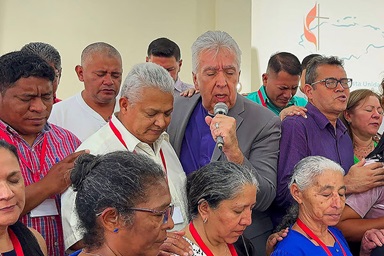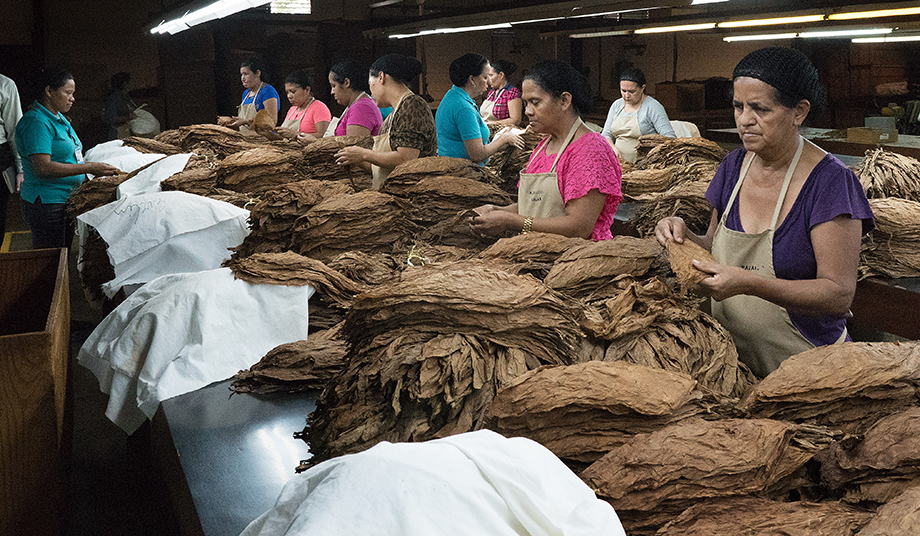
Most of the employees at the Tabacos de Oriente cigar factory in Danlí, Honduras, are women. After the tobacco leaves are cured, they are sorted by color and size.
Story and photos by Kathy L. Gilbert
Sept. 13, 2017 | DANLÍ, Honduras (UMNS)
Every Friday, for about 10 minutes, the sound being blasted to the employees of Tabacos de Oriente is the word of God instead of Guns N’ Roses or some other rockin’ soundtrack.
That word comes from the Rev. José Roberto Peña, pastor of Danlí Central United Methodist Church, who serves as chaplain of the cigar factory.
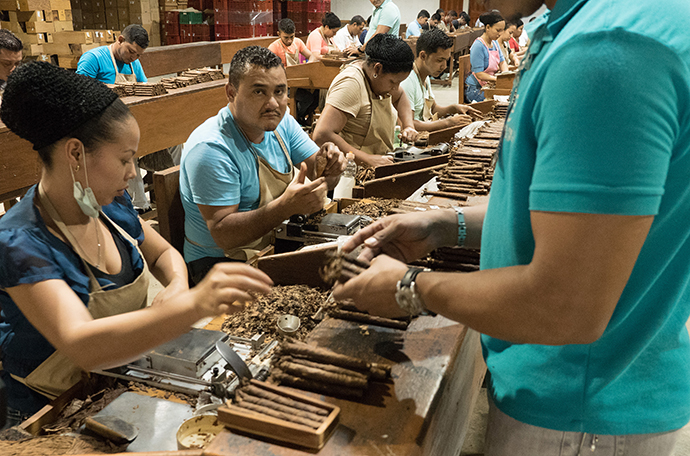
A worker stops by each station to collect the hand-rolled cigars and take them to the next area to be packed in cellophane sleeves, labeled and boxed.
The hardworking women and men cure, sort, ferment, strip, roll and wrap thousands of cigars, which are then sold around the world.
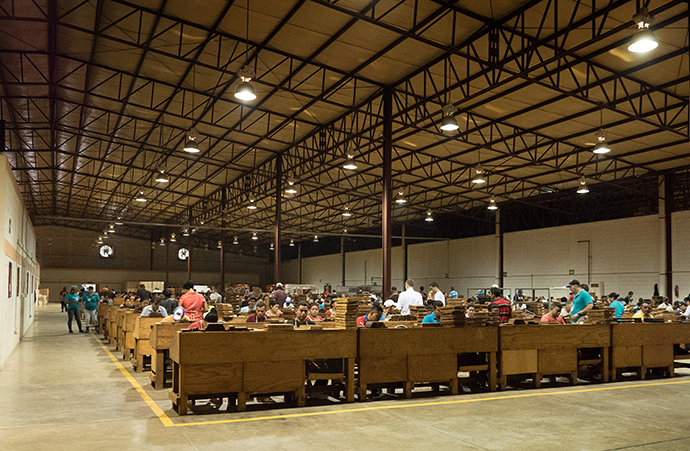
Bunchers and rollers sit side by side in teams of two in a large warehouse at the Tabacos de Oriente cigar factory in Danlí, Honduras.
Even though it is backbreaking and tedious work, jobs at the cigar factory are highly coveted in a country where 66 percent of Hondurans live in poverty. Most households live on less than $1.90 a day. And one of the main obstacles to reducing poverty is violence.
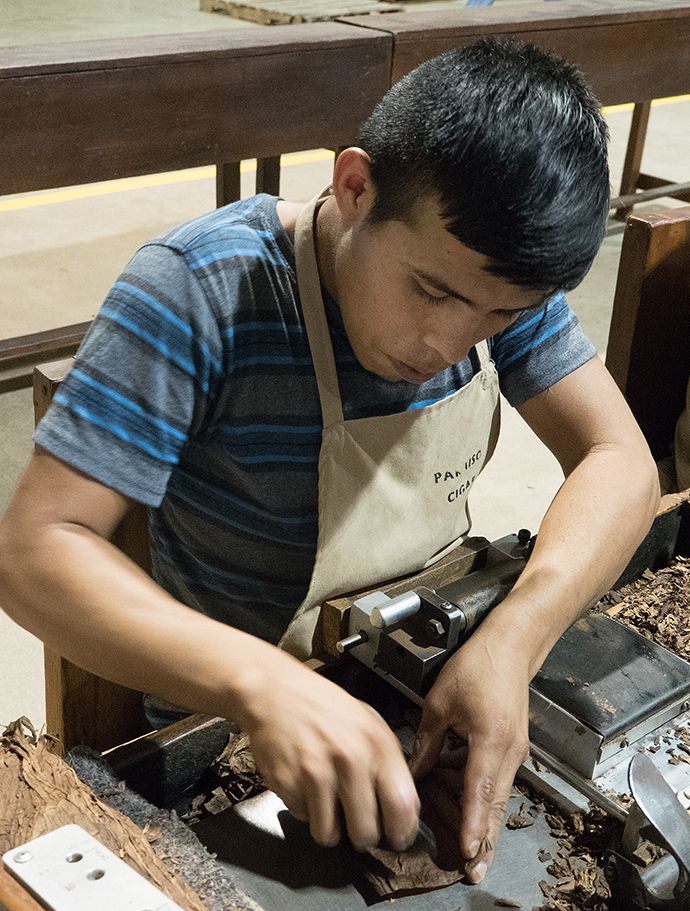
Fine cigars are rolled by hand.
The first thing you notice about the factory is the smell — slightly sweet and pungent, a mixture of ammonia and sugar from the nicotine, combined with flavorings such as cherry, honey, mocha and mesquite added to the leaves. It penetrates every inch of the huge factory.
Special report: Honduras and Guatemala 2017
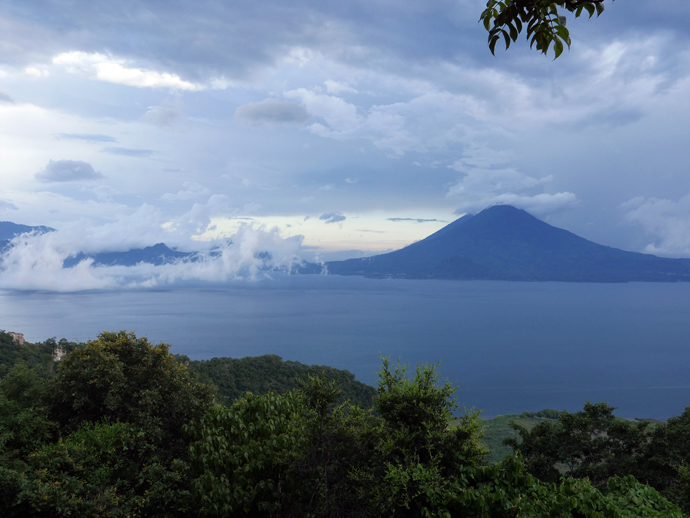
Read more from United Methodist News Service's series on Honduras and Guatemala.
Watch video interview with the Rev. José Roberto Peña, who preaches in a cigar factory.
A Global Migration Sunday Offering will be taken in United Methodist churches on Dec. 3, the first Sunday of Advent. The offering will be used to directly aid migrants and refugees. Thomas Kemper, top executive of the United Methodist Board of Global Ministries, told pastors in Honduras and Guatemala that the world will be praying with them on that day.
Peña said the work is especially difficult for new employees. “When they are new, the first two weeks they experience nausea and headaches. It is so hard to begin,” he said.
In the front of the warehouse, stretched out as far as the eye can see, are people of all ages sitting side by side in what looks like a cross between a school desk and a sewing machine. Heads bowed, their stained fingers never stop moving.
The majority of the 3,600 employees are women.
The factory is divided into three sections: pre-production, production and packaging. It takes two to three years for the tobacco leaves to ferment.
“It is very hard work. They usually work more than 12 hours a day and during high production time they work longer hours,” Peña said.
He has been preaching and counseling at the factory for three years. He is pastor of two congregations and in charge of the board of ministry for the Honduras mission. He came to Honduras as a missionary from Puerto Rico.
“My job is to come here every Friday and preach through the intercom,” he said. “I have established relationships with the people and they ask me to come to their houses when they are experiencing bad moments.”
Peña said since the workers are from different denominations and faiths, he avoids denominational issues and shares general theology and beliefs. He focuses on the daily situations of life.
“That is one of the reasons they’ve been keeping me,” he said, smiling. He said a manager at another cigar factory is inviting him to come there, too.
“When I don’t come, (workers) ask me, ‘Why? We need you to bring the Christian message.’”
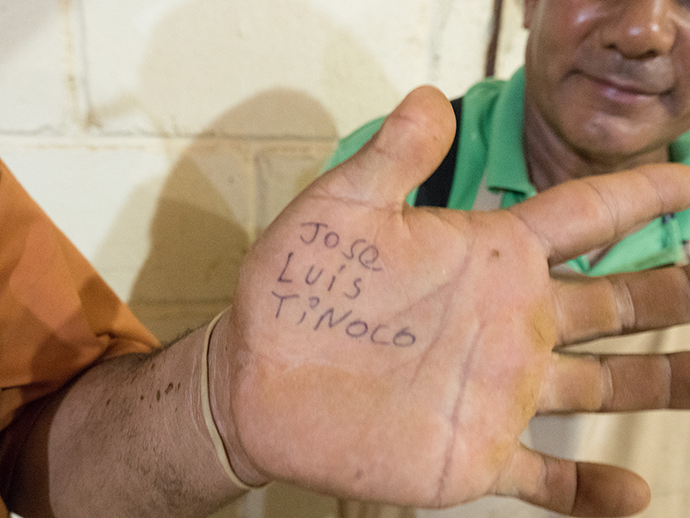
It is loud inside the cigar factory, Jose Luis Tinoco found it easier to write his name on his hand for the visiting reporter. Tinoco and Santos Martinez work in the fermentation process, they rehydrate each leaf using a rubber hose in a small humid cinder-block room.
Gilbert is a multimedia reporter for United Methodist News Service. Contact her at 615-742-5470 or newsdesk@umcom.org. To read more United Methodist news, subscribe to the free Daily or Weekly Digests.
Like what you're reading? Support the ministry of UM News! Your support ensures the latest denominational news, dynamic stories and informative articles will continue to connect our global community. Make a tax-deductible donation at ResourceUMC.org/GiveUMCom.


